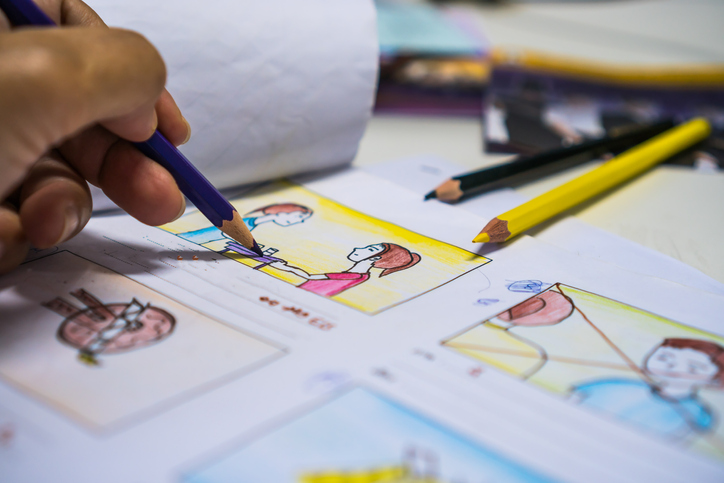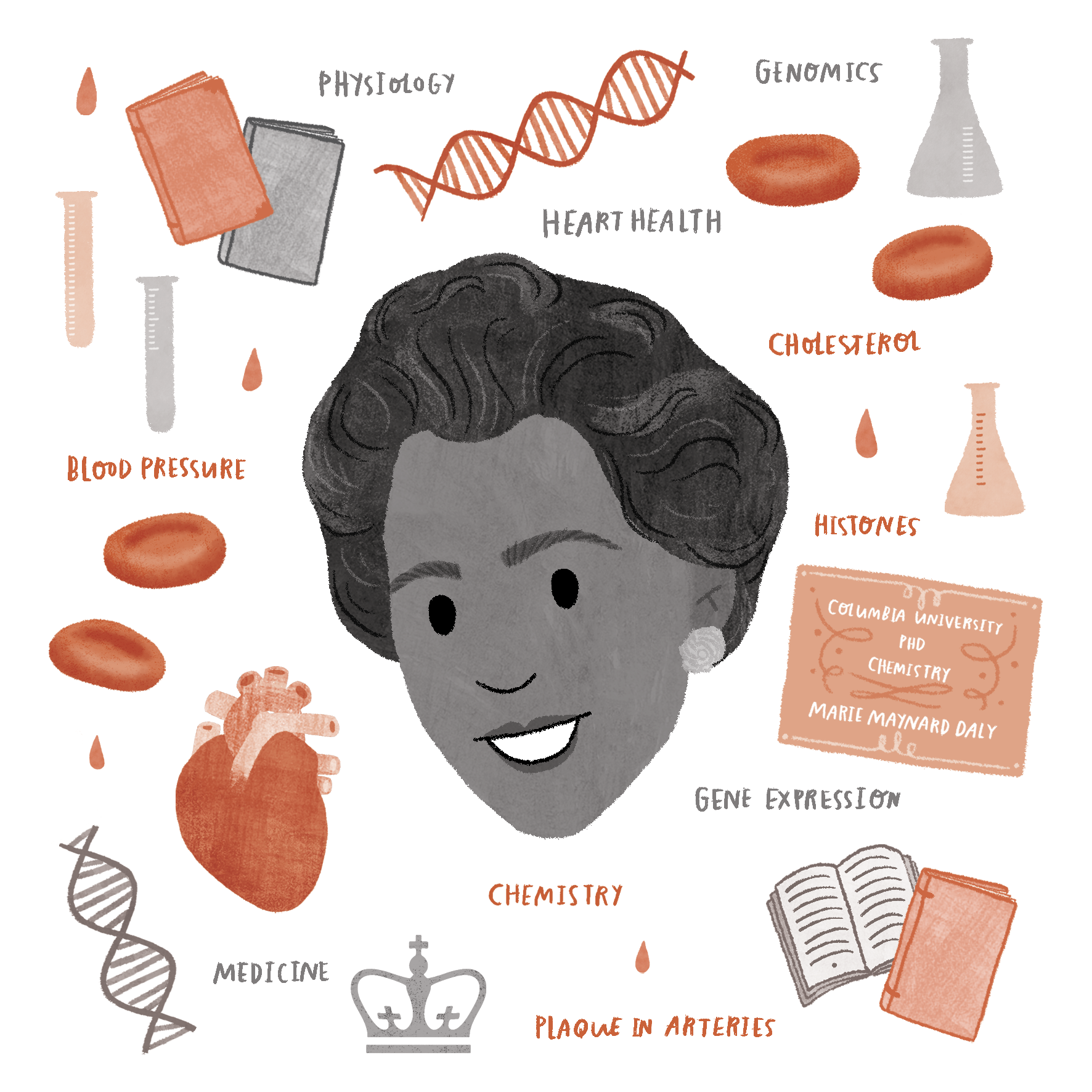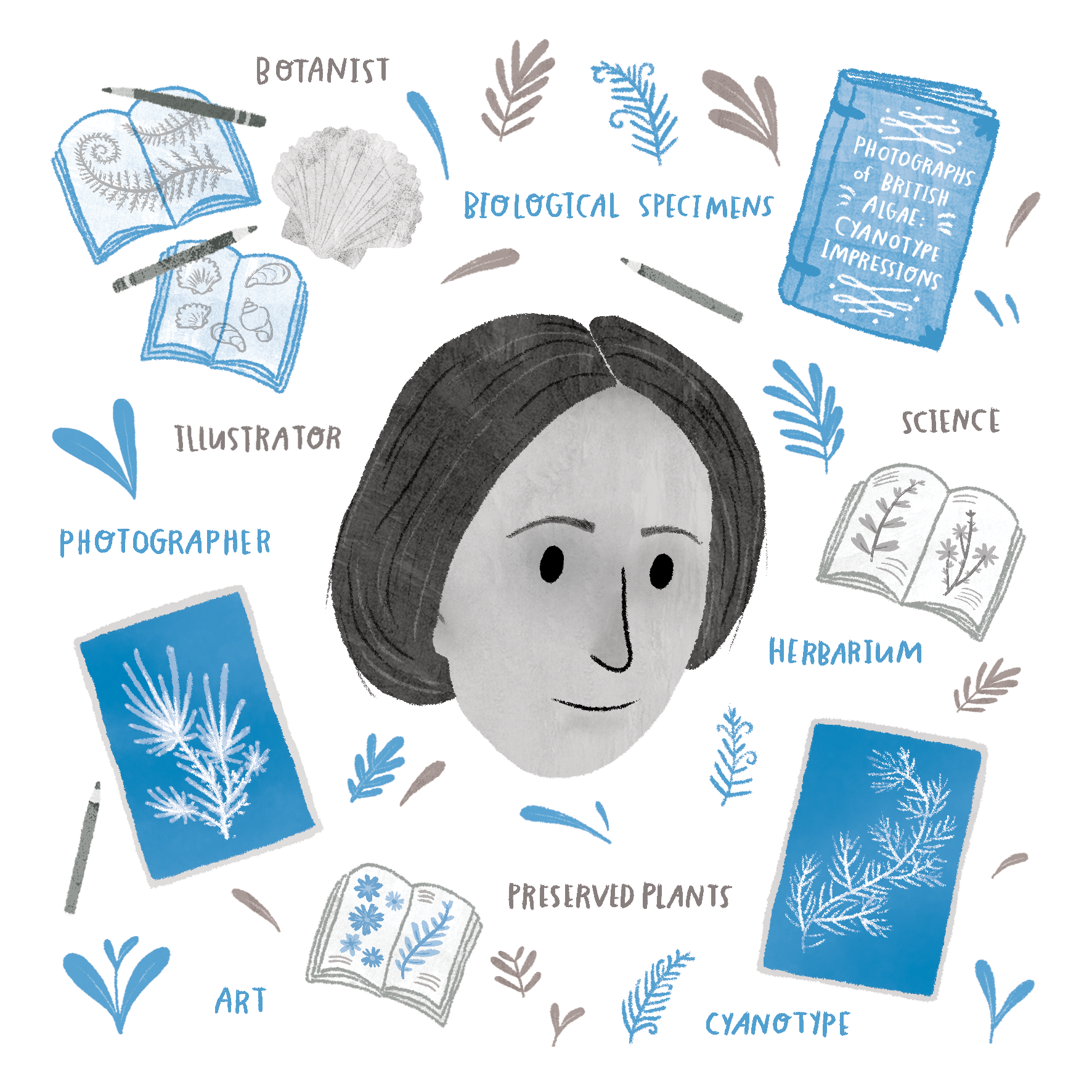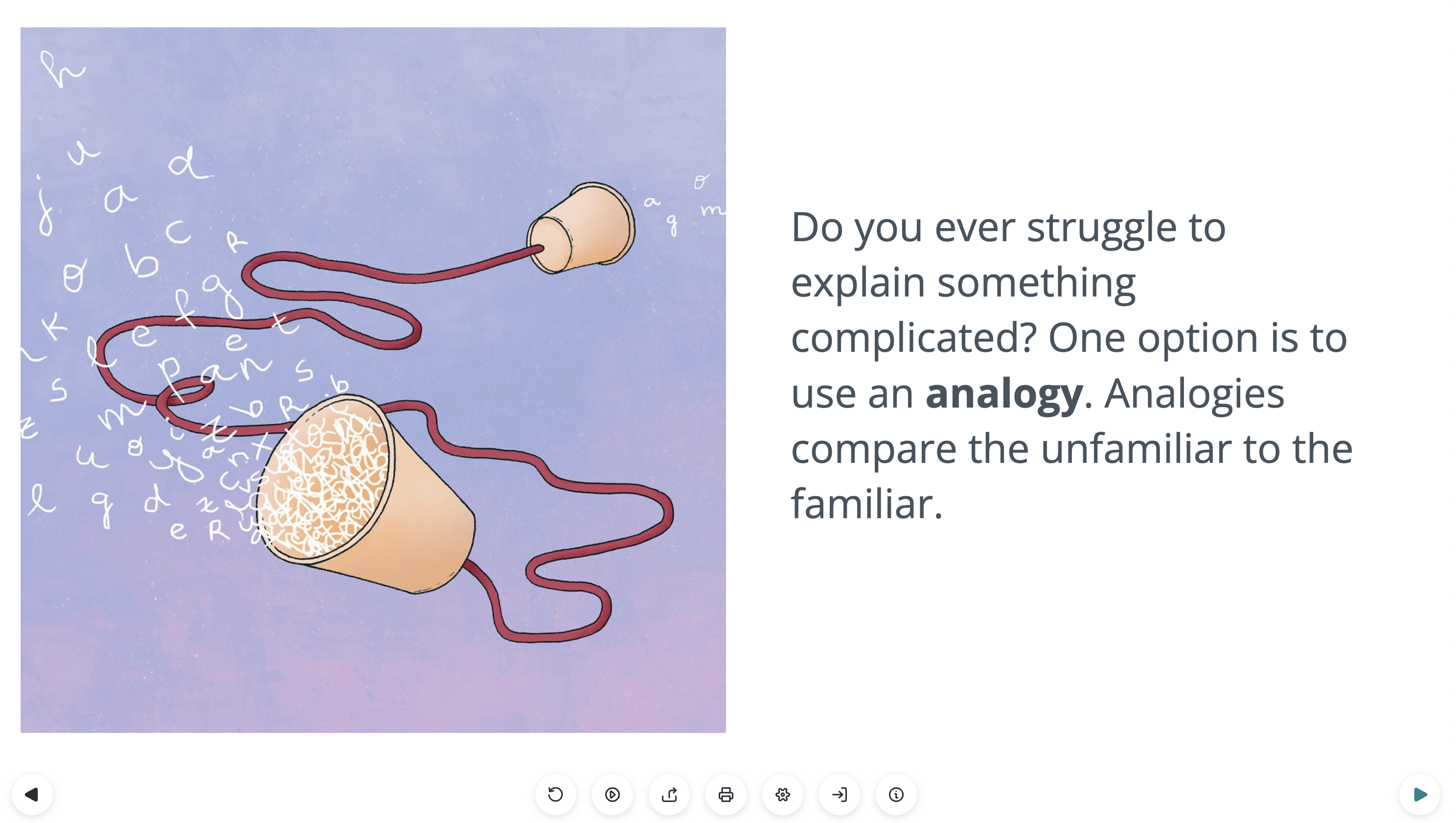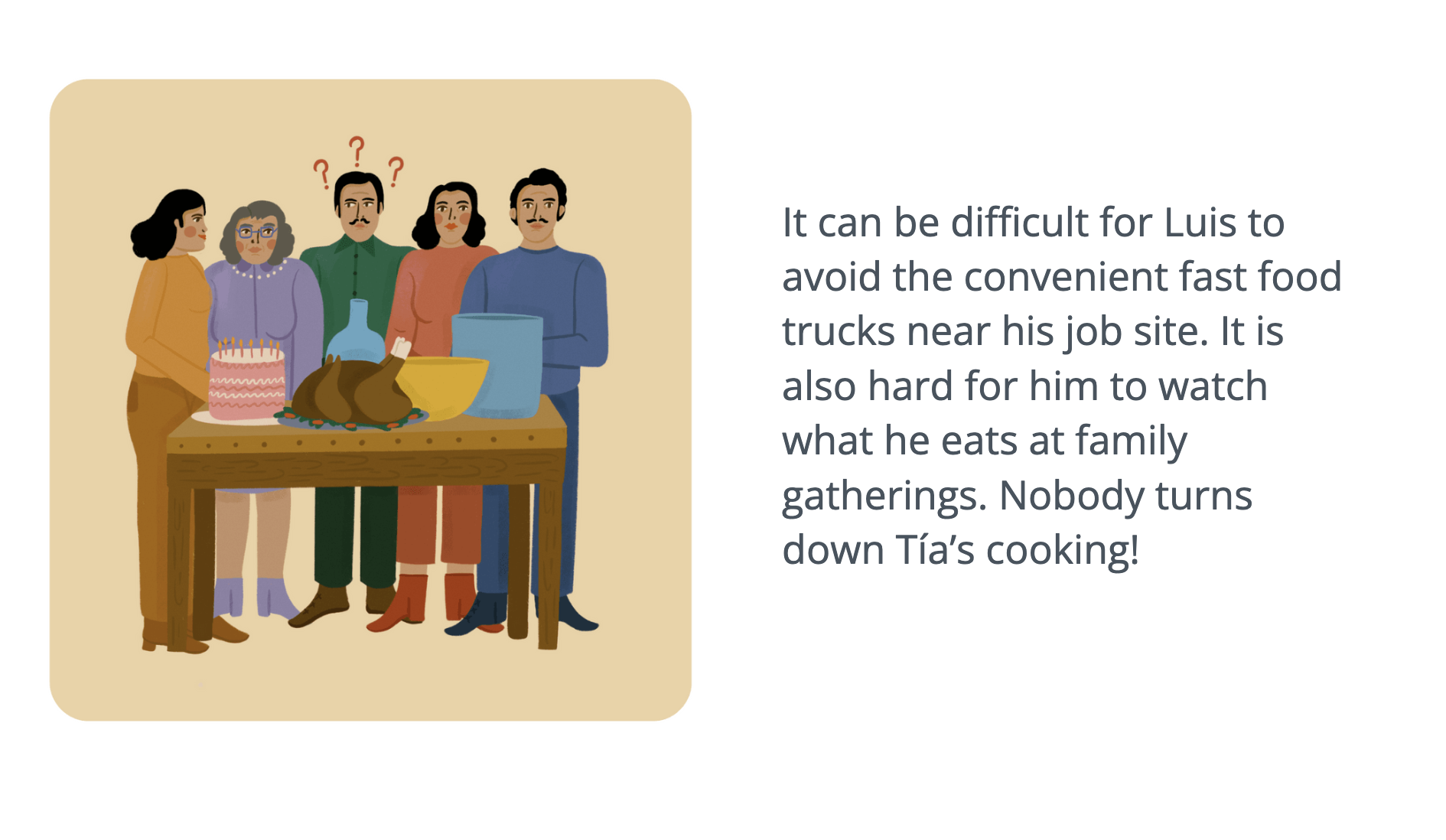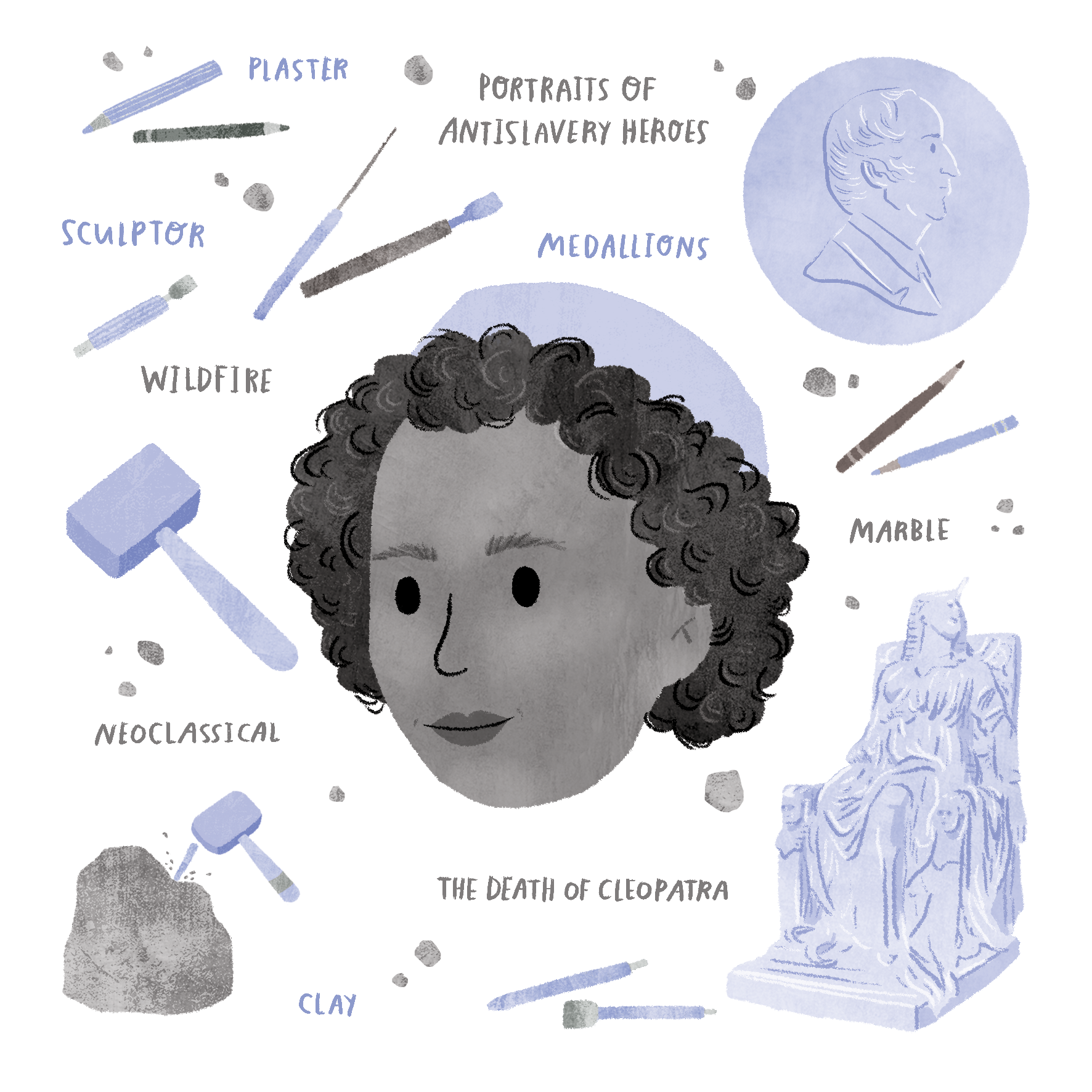
Women in STEAM (science, tech, engineering, arts, math and medicine) are rocking it in the world today, doing excellent but often under-promoted work. We want more people to know about these women and their work, including girls who might dream of careers in STEAM fields! That is the goal of our “living” Women in STEAM Lifeology card deck!
Each month, we feature new women in this living digital card deck, based on women nominated here. But all women nominated are also featured in this monthly Women in STEAM blog post.
We’ve also partnered with 500 Women Scientists to feature women from their gage search platform in a unique Lifeology card series, which we’ve now updated for February here!
We’ve featured three new inspirational women in our illustrated card decks for February!
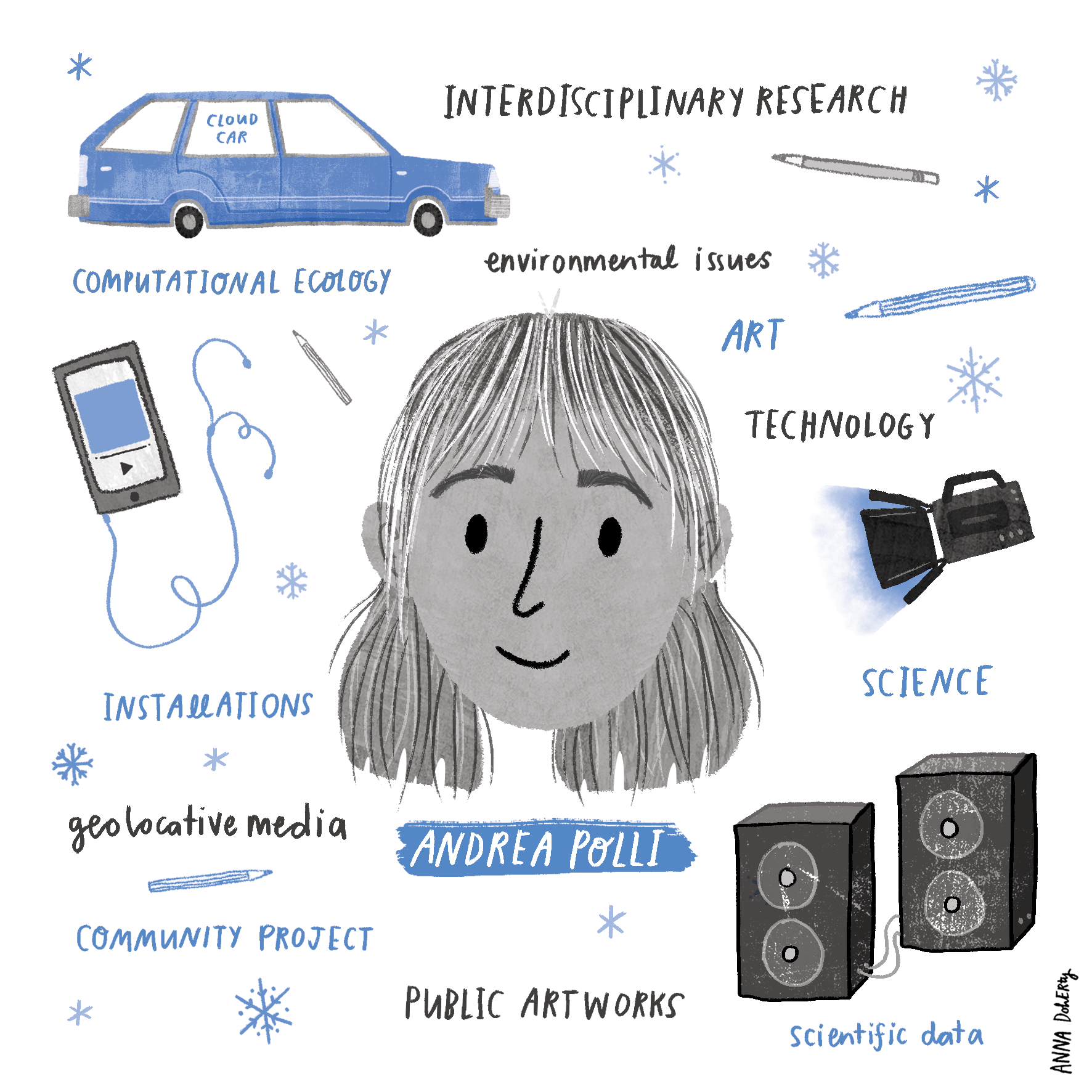
Andrea Polli is featured in our Women in STEAM deck. She is a Professor and Endowed Chair at the University of New Mexico. Her interdisciplinary research has been presented as public artworks, media installations, community projects, performances, broadcasts, mobile and geolocative media, publications, and through the curation and organization of public exhibitions and events. She creates artworks designed to raise awareness of environmental issues. Often these works express scientific data obtained through her collaborations with scientists and engineers and have taken the form of sound art, vehicle-based works, public light works, mobile media experiences, and bio-art and design.
She has created and presented public artworks at 25 locations, including a wind-powered light work covering the Rachel Carson Bridge in Pittsburgh, a permanent light work for the University of Utah, and building-scale works presented in the cities of San Jose, California, Charlotte, North Carolina, Detroit, Pittsburgh, Philadelphia, Hagen Germany and Zagreb Croatia.
She co-edited the book Far Field: Digital Culture, Climate Change and the Poles published on Intellect Press and authored Hack the Grid published by the Carnegie Museum of Art, and has written and published eight book chapters and entries, 20 journal articles and conference papers, and several short editorial essays, curatorial statements. Read more about Andrea and view her portfolio here.

Ashley Paynter is featured in our 500 Women Scientists Who Inspire deck. Ashley is a 4th year PhD Candidate at the University of Washington. Her long-term research goals lie at the intersection of age-related disease, evolutionary genetics and science communication. She is interested in studying how environmental and genetic variation affects predisposition for age-related diseases in natural populations. She is particularly interested in how the impacts of socioeconomic status, race and ethnicity accumulate over the lifespan to affect disease risk.
Ashley’s vision is to bridge the gap between activism and science by educating the public on environmental racism, health disparities and health inequity. Ashley is interested in the environment, black lives matter, community service (helping the homeless), cancer research, genetics, DNA sequencing, comparative oncology, evolutionary biology, and supporting, tutoring, and mentoring other black people.
“Ashley is a constant inspiration and reminder that we all need to take initiative to support black women and advocate for health equity.” – Jessica (Podcast Review)
Ashley has a podcast called Decolonizing Science which is about racism in the medical and research fields and seeks to amplify the voices of black and indigenous people. Ashley has a Yorkipoo Honey, who she loves very much, she also loves cooking exciting and creative dishes for herself, her friends and the community! Find Ashley on Gage.
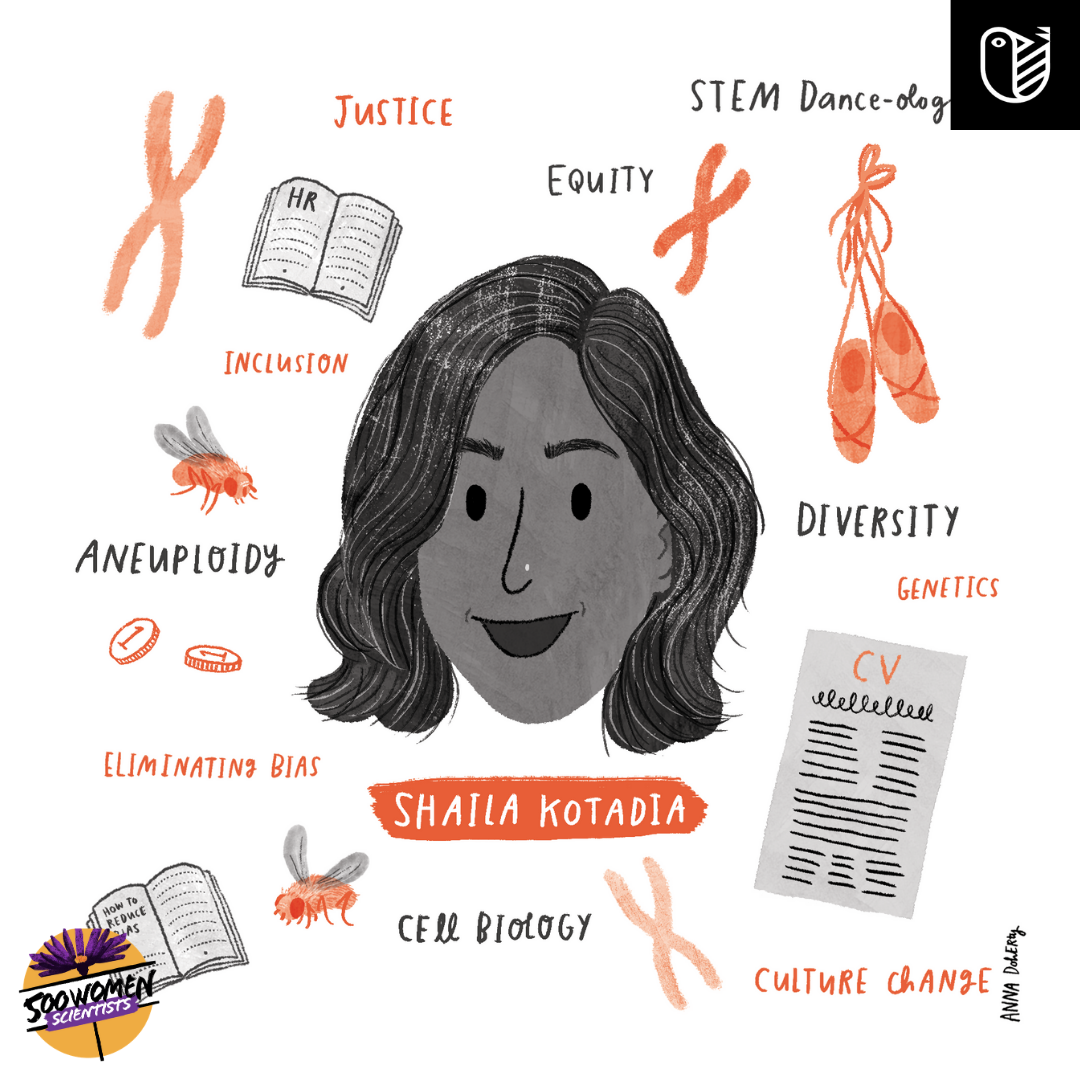
Shaila Kotadia is featured in our 500 Women Scientists Who Inspire deck. She is the Director of Justice, Equity, Diversity, and Inclusion at the Stanford School of Medicine. She works to eliminate bias in systems like recruitment, retention and more. As a scientist, her background is in genetics and cell biology. Shaila studied centrosome duplication for graduate work and chromosome segregation for postdoctoral studies.
“In my postdoc, I looked at adaptation mechanisms in cell division in the presence of extra long, stretched chromosomes, including an induced response and the evolutionary process. The big picture goal for my science was to better understand mechanisms that could lead to aneuploidy, a common hallmark of cancer. Currently, I focus on organizational effectiveness, integrating JEDI principles into staff initiatives, and eliminating bias from HR processes and policies to create culture change.” – Shaila Kotadia
Shaila enjoys knowing that she is transforming culture in the sciences, in higher ed, and in academic medical centers to create space to be authentic and increase a sense of belonging. The best of this process is bringing people together to collectively make change and build strong, trusting relationships. Shaila dances ballet and modern as a hobby. Taking her interest in science and her hobby dancing, she melded the two to co-found an organization called STEM Dance-ology that translates science concepts through creative movement to promote discovery for students of all changes. The goal is to make both science and dance accessible.
